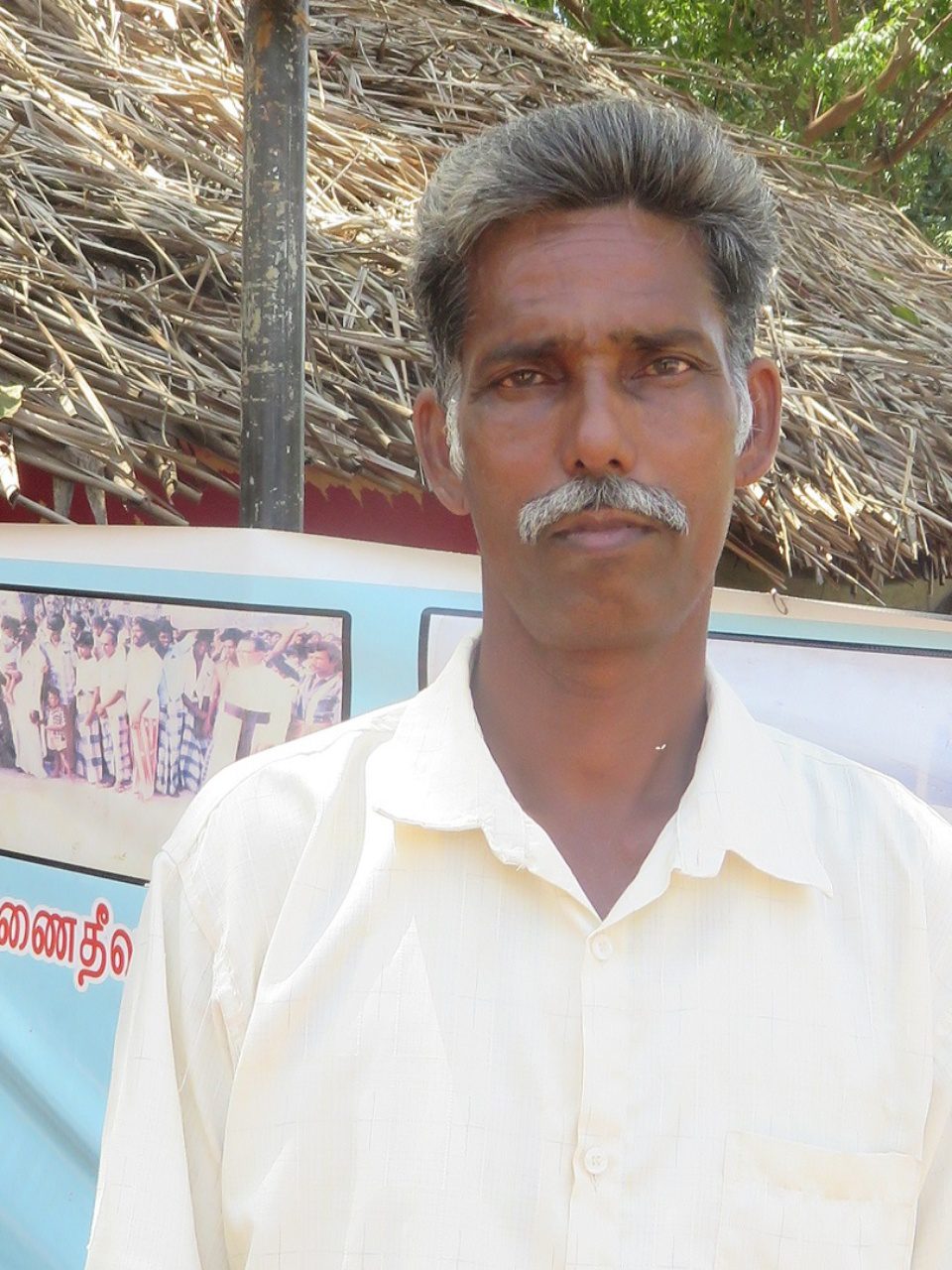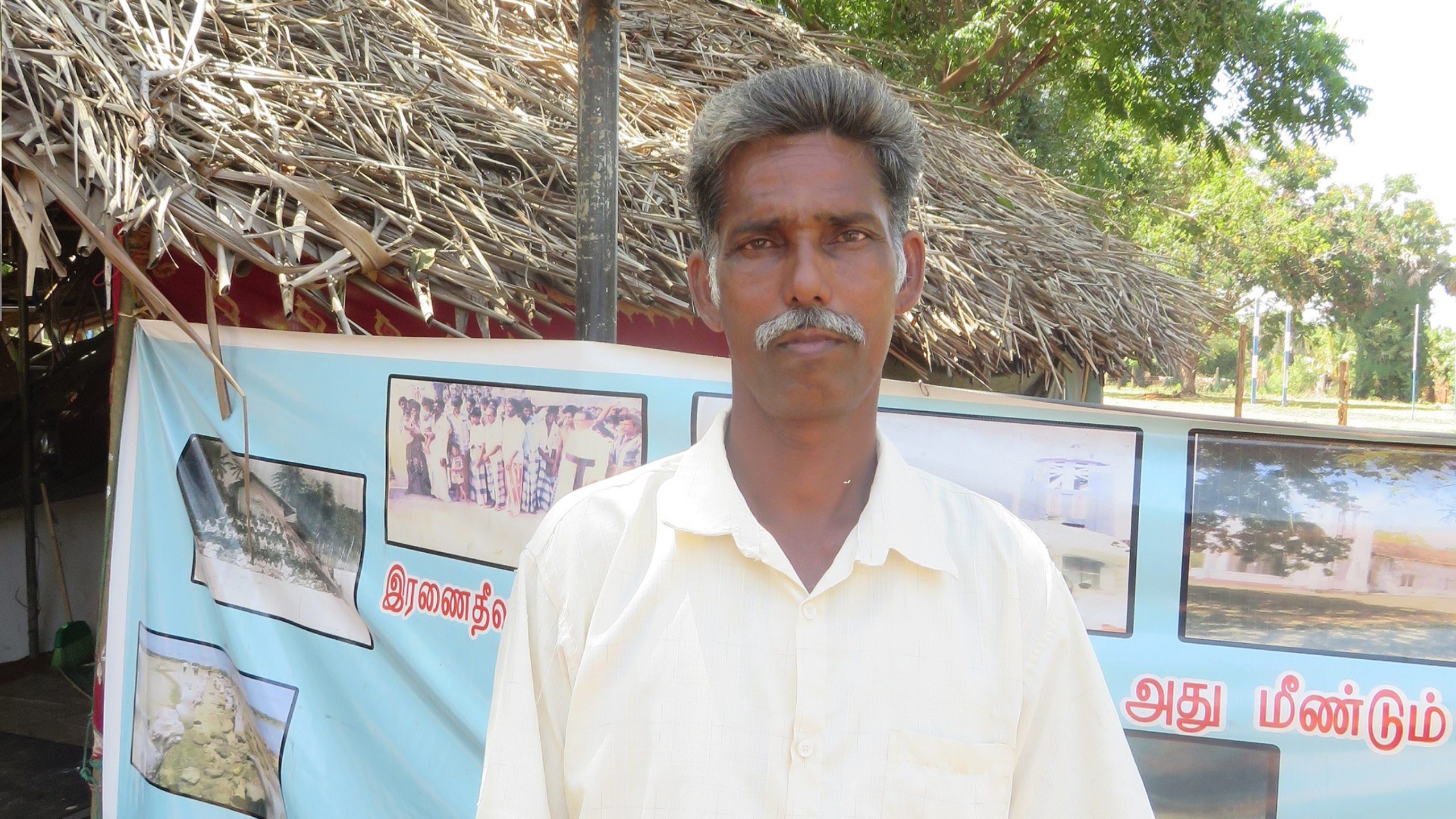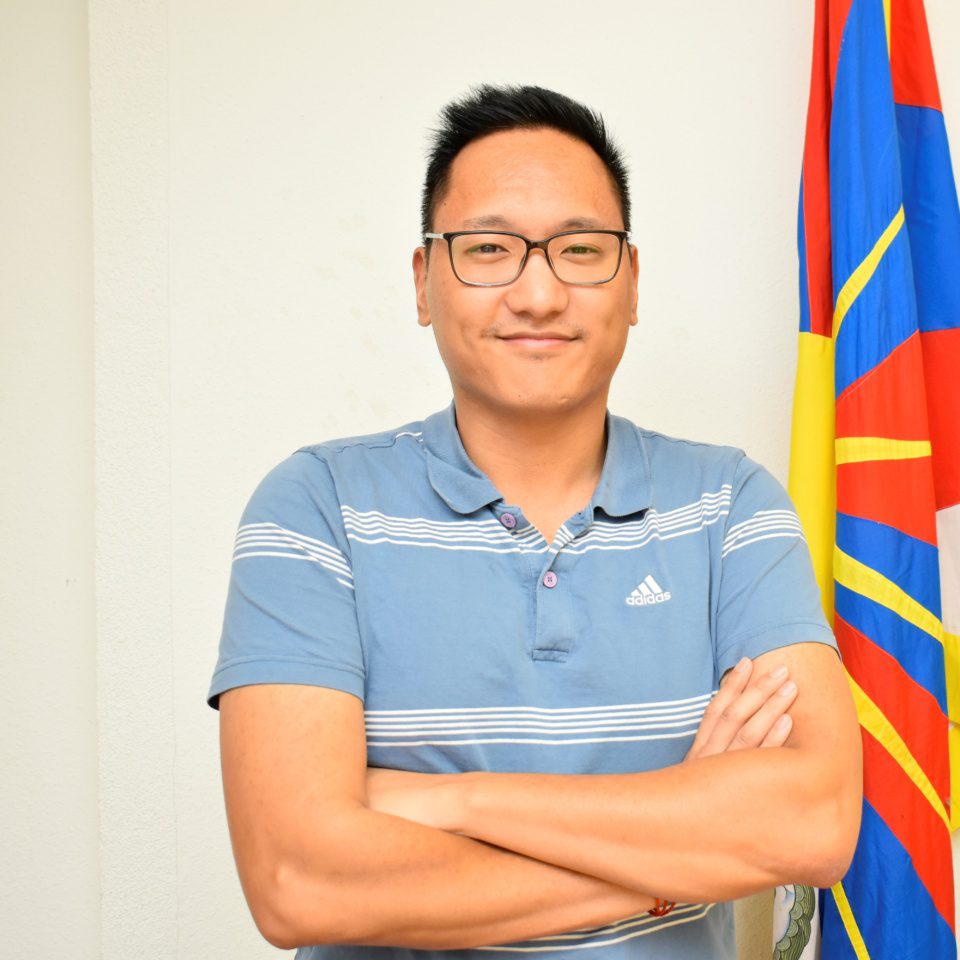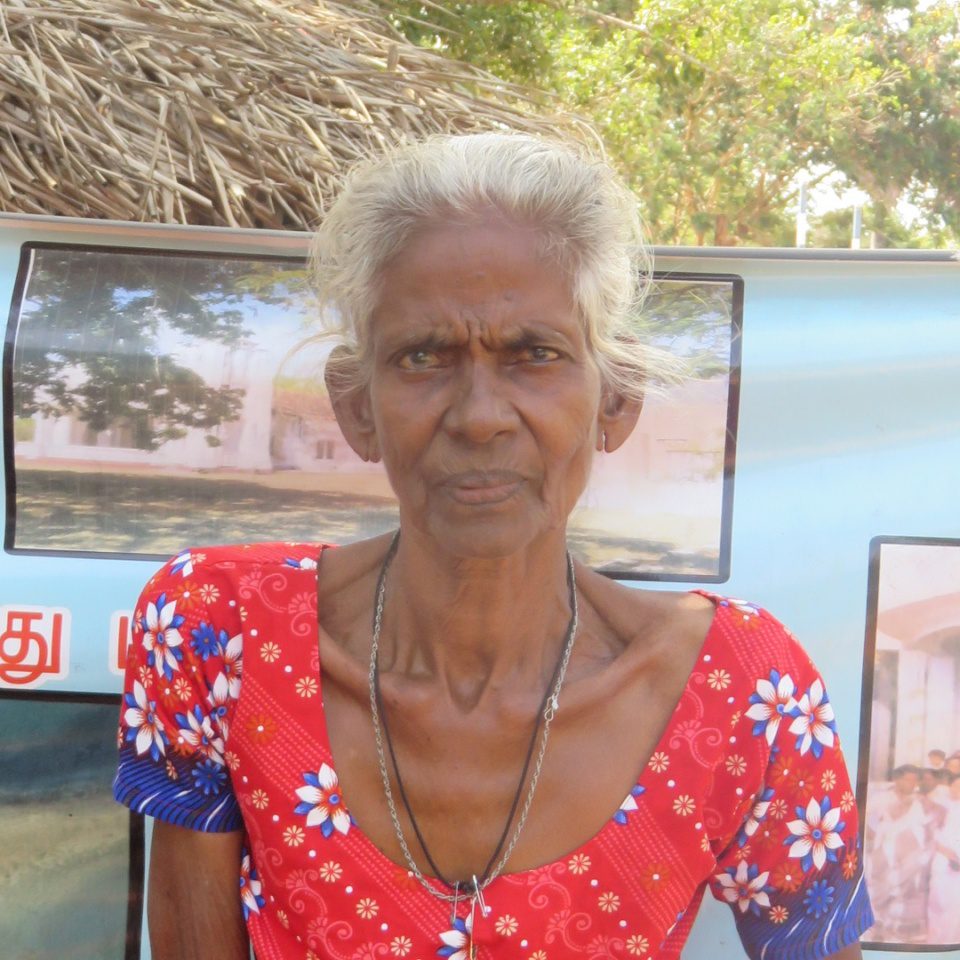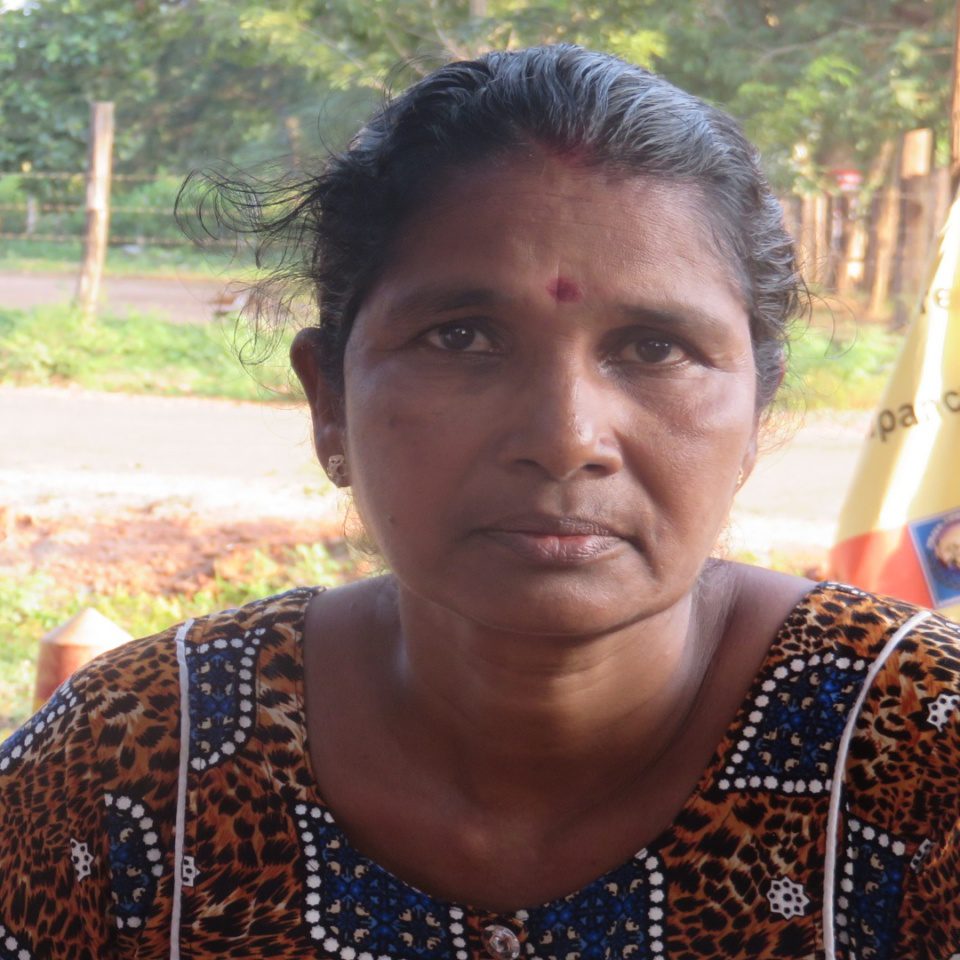Twenty-five years ago, John Kennedy had to leave his home, the island of Iranaitivu, because of the war. Today, he and his family still live in domestic exile on the nearby mainland. The Sri Lankan navy still occupies the entire island and uses it as a military base. This, despite the fact that the civil war in Sri Lanka ended in 2009.
“We finally want our land back", says John Kennedy determinedly, while standing in heavy heat at the protest site. This is not the first day on which the former inhabitants of Iranaitivu have protested against the continuing military occupation of the island. The protest began on 1 May 2017 and, to this day, people are out on the streets demanding that their concerns are taken seriously after so many years of injustice. “How can poor people like us oppose the navy and the government? All we have are our voices”, says John.
End of war without peace
John Kennedy's life is marked by the 26 years of war between the Sri Lankan government forces and the Liberation Tigers of Tamil Eelam (LTTE). When several civilians fell victim to the war offensives of the navy in 1992, the then 22-year-old left the island in northwestern Sri Lanka. Since then he has lived on the mainland but regularly visits Iranaitivu to look after the coconut trees and to go fishing.
In 2007, the now father of five, was again caught between the fighting fronts. The advancing government forces compelled John's family, whose youngest child had just reached the age of 18, to flee again. The LTTE's increasingly hopeless rear-guard action pushed the population on the northwest coast to walk over 150 kilometres across the entire island. John recalls the traumatic events: “We moved from one refugee camp to another. We went to 16 different locations and were even bombed in the No Fire Zone”.
The comprehensive military victory of the government troops in May 2009 brought little relief to the family. John's family was interned with 280,000 other internally displaced people in a barbed wire fenced refugee camp under inhumane conditions. When, more than six months later, John and his family were finally allowed to return to the northwest coast, the navy had quickly converted Iranaitivu into a military zone. With the exception of access to a small section of the beach, the former inhabitants were no longer allowed to enter the island.
Giving up is not an option
For many people in the north and east of Sri Lanka, access to a piece of arable land and to the sea is a crucial requirement for a self-determined life without hunger. As a fisherman, John did not get rich because his land was close to the sea and was good arable land for livestock and coconut cultivation; he had an additional income. The earnings that he makes today as a fisherman without his own boat to transport him to and from the mainland are often not even sufficient to meet his family’s basic needs. The fishermen need much more fuel to reach their traditional fishing grounds as they are no longer allowed to spend the night in Iranaitivu. However, non-resident fishermen from the south of the country and from Jaffna are allowed to spend the night on the island.
For John, returning to his own land after years of expulsion would be the first step to returning to a normal life and to real peace. For John it is clear: “The government speaks of reconciliation and justice. Reconciliation and justice can only be achieved when we get our land back”.
The GfbV campaign for land returns in the Vanni area of Sri Lanka has had a success: In mid-May 2018, the Navy returned its land to the inhabitants of the island of Iranaitivu. For the people of Iranaitivu, this means that from now on they will be able to fish and collect seafood without restriction - and that people will be able to earn a good income again.
